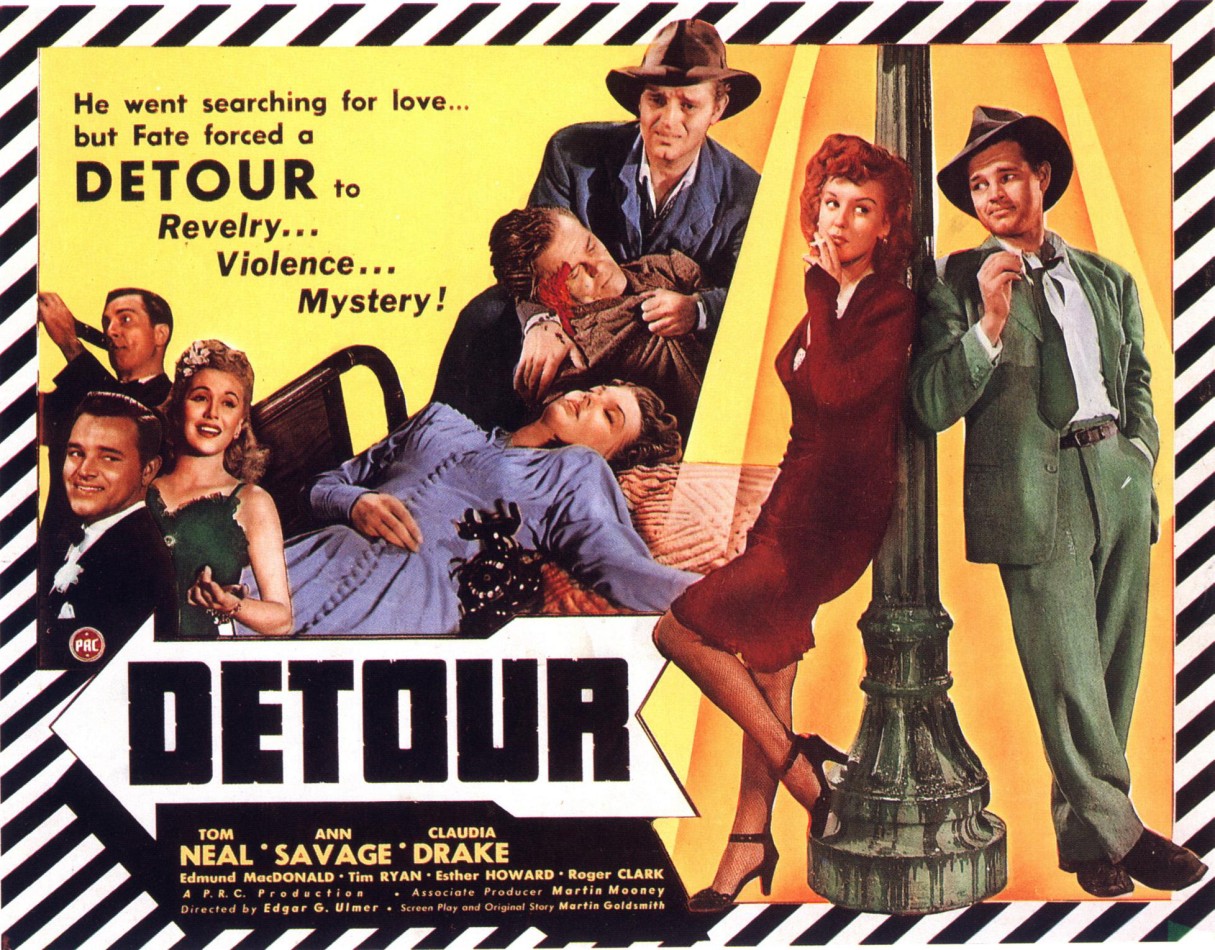
In the film Detour by Edgar G. Ulmer, the classic stereotype of the femme fatale is altered to become the damsel in distress. In Detour, the femme fatale is portrayed by the character Vera. When we first see Vera, the main character Al Roberts (who has assumed the identity of the deceased Charles Haskill, Jr.) has agreed to give her a ride to Los Angeles. After she gets in the car, Roberts initially assesses Vera as a woman "who looked like she had been thrown out of the crummiest freight train in the world. Yet despite this I got the impression of beauty... a natural beauty. A beauty that's almost homely because its so real." His view of her quickly changes as it is not long after she joins Roberts on his journey to Los Angeles, that Vera realizes that Roberts is not Haskill (who was her ex-acquaintance) and she proceeds to blackmail Roberts to get what she wants. Vera and her threats to report Roberts as Haskill's killer become the main obstacles preventing Roberts from reaching his beloved Sue Harvey (the love of his life and the impetus for his sojourn from New York to Los Angeles).
However, as the story unfolds we start to see Vera in a different light. She has made Roberts her prisoner, every time Roberts is on the verge of ending their morbid union she finds some way to keep them together longer. This is first apparent when Roberts tells her of his plans to ditch the car (Haskill's car) and she points out the obvious fact that that would just put the police on his trail. She then convinces him that he must sell the car and that until this task was completed they would be together.
After reaching Los Angeles, Vera insists that Roberts and her get a rent a room where she convinces him that they must pretend to be Mr. and Mrs. Haskill. She uses the guise that on the off chance that the car dealership calls, their using the name Mr. and Mrs. would not alert the dealership to their ruse. While in the room, Vera comes on to Roberts and there is a mood that alludes to the notion that Vera may indeed be a very lonely woman who is stalling to spend more time with Roberts. She attempts to get him to sleep with her, and when he ignores her advance she returns to her former hostile self. More episodes such as this continues through out the movie, Vera softening to pull Roberts closer to her and then upon Roberts' denial, we see her coil back as if wounded because she cannot get him to show her affection. This is further showed when Vera corners Roberts and asks him if he likes her. He replies,"I love ya!" with a sarcastic tone in which she reverts back to her acidic demeanor. In this constant reporte, we see the director paint her as a woman who is lonely and will do anything to keep the company of a man, even if it means blackmailing him. Through the constant back and forth of Vera and Roberts, the audience's allegiance slowly shifts and we come to feel sorry for Vera. This sympathy for Vera is culminates when Roberts accidentally murders Vera by strangling her with the phone cord she as wrapped aroung her own neck in a drunken stupor. Thus, she has become a damsel who is need of saving from her own loneliness, but because of the atrocities she has committed (blackmailing Roberts) due to her loneliness, she becomes the source of her own death.
No comments:
Post a Comment